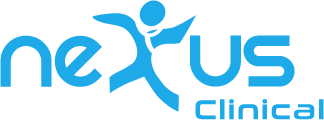
Technology has revolutionized the way we approach healthcare. Electronic Health Records (EHRs) and Artificial Intelligence (AI) are two such technologies that are changing the game for medical professionals. EHR has transformed the way medical information is stored, managed, and accessed, whereas AI in healthcare is helping doctors deliver better patient care. This blog explores the impact these technologies are having on the healthcare industry and why every medical professional should embrace them fully.
Predictive Analytics
Predictive tools can help to alert the providers on potentially perilous situations. AI powered EHRs integrated with DICOM imaging tools can enhance medical image interpretation algorithms leading to better decision support and treatment strategies.
Data Access
Healthcare providers can access patient data from various sources like faxes, clinical data, provider notes, etc. Using by AI powered EHR providers can identify key terms that requires actionable insights.
Efficient Records Management
EHRs have made the over-arching task of records management more efficient and secure. Medical professionals no longer need to spend countless hours digging through paper files to find a patient’s medical history. Instead, EHRs allow for fast and easy access to complete, up-to-date, and accurate patient information. This has been particularly useful in emergency situations, where access to accurate information can be a life-saver.
Medical Documentation
Healthcare IT companies are adopting AI to develop Natural Language Processing powered tools, when integrated with the EHRs it helps in capturing data from the clinical notes, thereby, allowing providers to focus more on their patients and the treatments.
AI in Patient Care
AI is a game-changer when it comes to patient care. AI technologies can help identify patterns in patient data, which can be used to predict future illnesses or disease progression, allowing for early interventions. Also, smart devices powered by AI and connected to EHRs can monitor patients continuously and alert healthcare professionals when there are signs of trouble.
Managing Chronic Conditions
EHRs and AI are proving particularly useful in the management of chronic conditions. AI-powered EHRs can track a patient’s vital signs, monitor medication adherence and provide insights that help doctors identify patterns that may signal a worsening of the condition. This allows for more preventive measures to be taken, preventing the worsening of chronic conditions, lowering healthcare costs, and improving patient outcomes.
Decision Support
Decisions on treatment procedures and strategies are usually based on empirical data and generic clinical approach. However, with AI powered EHR systems, more machine learning solutions that enable personalized care and learn on new and real-time data will emerge.
In conclusion, the integration of EHRs and AI in healthcare industry has brought several positive impacts. Medical professionals can now access complete and accurate patient information at the click of a button, enhancing patient care and safety. The automation of tasks has also allowed for greater efficiency, allowing doctors to spend more time with patients. The use of AI in predictive analytics is helping doctors diagnose and treat patients more accurately, leading to better medical outcomes and a better experience for patients. It is without a doubt that EHRs and AI are transforming healthcare, and our medical professionals need to embrace these technologies to deliver quality care.






